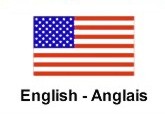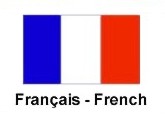Kansas Town Named After Local Captain Celebrating Adoption of French Hamlet
Capt. Ebenezer (Rattler) Morgan, one of the great figures in New London whaling history, is commemorated in a
pageant today with which Morganville, Kans., is observing its adoption of the farming community of Feves, France.
Morgan, the founder of the Kansas town with a population of 200, is regarded as an almost legendary character there.
He went to Kansas in 1870, soon after retiring from the sea, staked a claim and bought an 800-acre cattle ranch.
The old whaling captain's experience as a rancher fits well into the theme of the pageant, entitled One World or
None. For Morgan, who dreamed during years at sea of "getting away from the world" on a wild west cattle ranch,
found he couldn't do it.
Gave Ranch as Townsite
So he returned to spend his declining years in the east. But when he left Kansas, he donated his ranch as the
townsite of Morganville.
Morganville's population of 200 is about equal to that of Feves, located in Lorraine near Metz. Feves was hard hit
by the war and, among other things, lost all its livestock.
The Morganville adoption is part of a nationwide movement toward direct affiliation between towns here and abroad,
arranged by Operation Democracy, Inc., of 369 Lexington Avenue, New York City. So far, Operation Democracy has well
over 200 such affiliations under way.
According to Charles L. Todd, executive secretary of the organization, Morganville is the smallest community in
America to have tried the plan out.
Left a Million
His biography indicates that Morgan, like the town he founded, was small of stature, but great of heart. He was born
in Boston in 1817, orphaned young and signed aboard a whaler as a cabin boy at the age of ten. When he died in
1890, he left an estate worth close to a million dollars - and the dollar was worth 100 cents then, not 40 as
now.
He became a master at 21, and during the 41 years he spent at sea, he made many successful voyages, almost all from
this port. It is a moot point whether his nickname "Rattler," came from his "rattling good voyages" or, his
loquacious nature.
But Alexander Starbuck's authoritative volume on the American whaling industry credits Morgan with the "best voyage
on record." This was a cruise in 1864-65 in the Pioneer, which brought back 1,391 barrels of whale oil and 22,650
pounds of whalebone, yielding a profit of $114,000 on a $36,000 investment. The Pioneer, incidentally, was the
first steam whaler fitted out in the United States.
Profited front Russian Agreement
In connection with the "One World" pageant honoring his memory, it is notable that Morgan was one of the first to
profit through a Russian-American agreement of his own day: In 1867, Russia ceded Alaska and its outlying islands
to the United States. And in the following year, Morgan was the first to plant Old Glory on Alaskan soil - on a
trip from which he returned with 45,000 sealskins.
No descendants of the redoubtable captain now reside in this area. His home in later years was at 181 Monument
street, Groton. He was a confirmed Republican, who outfitted "Morgan's Zouaves" in baggy red pants, blue tunics
and gold braid to march in the political torchlight processions. His religion extended to supplying outbound
whalers with boatloads of Bibles.
And in his old age, when neither of his two sons could climb the flagpole in his back yard in Groton to set the
halyards straight, Morgan gave them a disgusted look, whipped up the pole and fixed the ropes himself.
Evening Day
New London, Connecticut

